Kingsgrove Branch:
Schnap Electric Products Blog
Schnap Electric Products Blog Posts
E27 LED Bulb
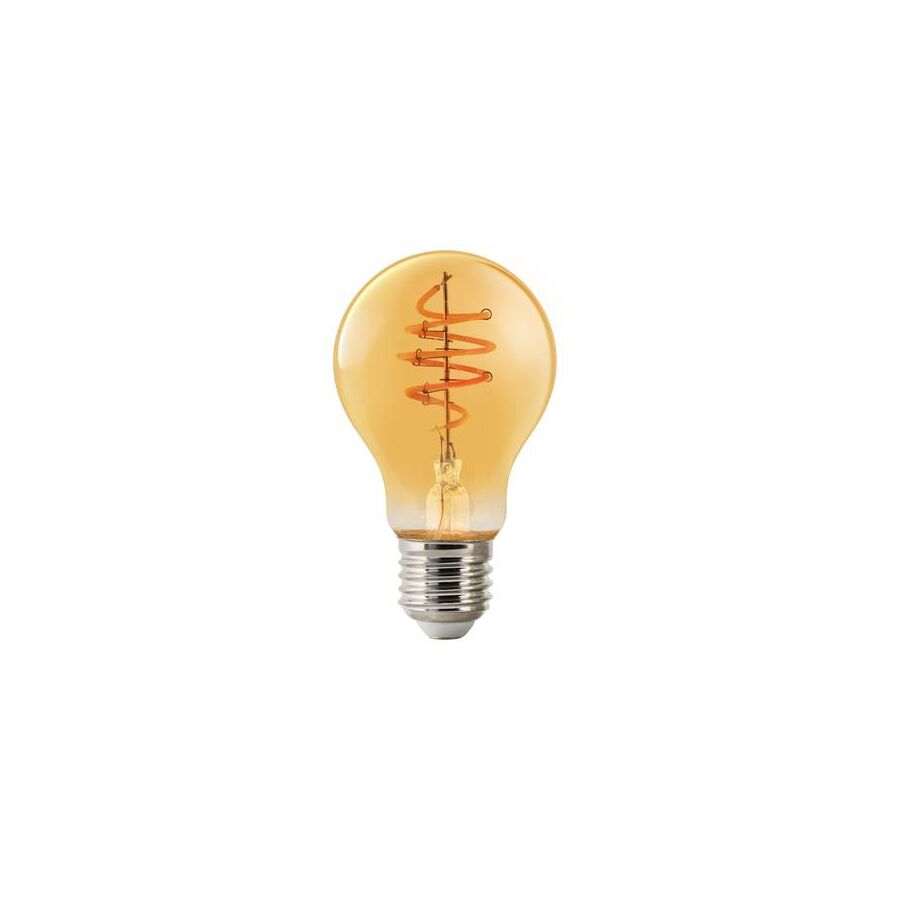
G'day! When it comes to lighting up our homes, Australians generally deal with two main types of fittings: the "push and twist" Bayonet (B22) and the "screw-in" Edison Screw. The most common of the screw-in variety is the E27. Named after Thomas Edison, with a 27mm wide base, this fitting is standard for floor lamps, pendant lights, and many modern oyster fittings.
If you are still using old incandescent or halogen globes in these fixtures, you are missing out on significant savings. Swapping them out for a modern e27 led bulb is one of the quickest wins you can get for energy efficiency. It instantly modernises your home, reduces heat, and slashes your electricity consumption without requiring you to call a tradesperson.
Why the E27 is Everywhere
While the Bayonet cap was the standard in Australia for decades, the E27 has become increasingly popular due to the influx of European and international lighting fixtures. If you buy a lamp from a major furniture retailer today, chances are it will require an Edison Screw bulb.
The beauty of the modern e27 led bulb is its versatility. Because the screw base provides a secure mechanical connection, it is often used for heavier bulbs, such as large decorative globes or smart lights that contain extra internal components for Wi-Fi connectivity.
Style Meets Efficiency: The Filament Look
For a long time, people resisted switching to LED because they hated the look of the white plastic base on the bulb. In open pendant lights where the bulb is visible, aesthetics matter.
This is where the "LED Filament" style shines. These bulbs are designed to look exactly like the old-school carbon filament globes of the 1920s. They feature strips of LED diodes arranged inside clear or amber glass. They produce that warm, nostalgic glow that looks fantastic over a kitchen island or in a bedside lamp, but they run cool to the touch. You get the vintage industrial look without the massive power bill.
Lumens, Not Watts
When shopping for a replacement e27 led bulb, you need to change how you think about brightness. We used to grab a "60-watt" bulb, but watts measure power, not light. Since LEDs are so efficient, a 60-watt equivalent might only use 9 watts of power.
To get the right brightness, look for "Lumens" (lm) on the box:
- 450lm: Great for bedside lamps (mood lighting).
- 800lm: The standard for general room lighting (approx. 60W old style).
- 1500lm+: For large rooms or garages where you need maximum visibility.
Sourcing Trade Quality Globes
It is tempting to pick up a cheap multi-pack of bulbs at the supermarket, but you often get what you pay for. Cheap LEDs can suffer from flicker (which causes eye strain) or poor colour consistency, meaning one "Warm White" bulb looks yellow while the other looks pink.
Professional lighting designers and contractors understand that quality components make a difference. When they visit an electrical wholesaler to source lamps for a commercial fit-out, they look for globes with robust drivers that can handle voltage fluctuations and have a high Colour Rendering Index (CRI). Using trade-quality globes ensures that your home lighting feels natural and lasts for years, not months.
Reliable Lighting from Schnap Electric
If you are ready to upgrade your fixtures, you need bulbs that fit perfectly and perform reliably.
Schnap Electric Products is a leading supplier for the trade industry in Australia. They stock a comprehensive range of lighting solutions, including high-performance e27 led bulb options in various shapes, from the standard "GLS" pear shape to decorative globes and candles. Whether you need a bright cool white for the study or a dimmable warm white for the lounge, they have the gear. By providing the same professional-grade equipment you would expect to find at a major electrical wholesaler, Schnap Electric ensures your home is illuminated efficiently and stylishly. For the best in screw-in lighting, check out the range at Schnap Electric.
E14 LED Bulb

G'day! While the standard Bayonet (B22) and large Edison Screw (E27) get all the attention as the heavy lifters of general room lighting, there is a smaller hero doing the hard work in our bedside lamps, range hoods, and fancy chandeliers. We are talking about the e14 led bulb.
Commonly known in Australia as the "Small Edison Screw" or "SES" fitting, this 14mm wide screw-in base is the standard for decorative lighting. If you have a multi-arm chandelier in the dining room or a sleek reading lamp on your desk, chances are it uses an E14. Switching these specific fittings to LED is one of the smartest moves you can make, not just for the energy savings, but for the safety of your light fittings.
Keeping it Cool
The biggest problem with the old incandescent or halogen E14 bulbs was heat. Because these bulbs are often used in enclosed spaces (like fancy glass shades) or in close proximity to fabric (like lamp shades), the intense heat generated by old-school filaments caused real damage. It was common to see plastic fittings become brittle and discoloured over time.
An e14 led bulb solves this instantly. By converting electricity into light rather than heat, they run incredibly cool. This protects your expensive decorative light fittings from heat damage and reduces the fire risk in children's bedrooms where bedside lamps are often knocked over.
Shapes to Suit the Style
Unlike standard ceiling lights which are usually hidden behind a diffuser, E14 bulbs are often on display. This means the shape of the bulb is just as important as the light it produces.
Candle Shape This is the classic choice for chandeliers and wall sconces. Designed to mimic the shape of a flame, they look elegant even when turned off. You can get them with a frosted finish for a soft glow or a clear finish for a sparkle effect.
Fancy Round (Golf Ball) These are small, spherical globes often used in desk lamps, makeup mirrors, or string lights. They are compact and unobtrusive.
Pilot/Pygmy These are tiny bulbs used in very tight spaces, such as inside a fridge, a sewing machine, or a range hood.
The Filament Look
For exposed lighting, the look of the internal components matters. Early LEDs looked like white plastic gadgets, which ruined the aesthetic of a crystal chandelier.
Today, you can buy an e14 led bulb in a "filament" style. These use strips of LED diodes arranged to look exactly like a traditional carbon filament. They provide that vintage, warm charm that Aussies love, perfect for heritage homes or industrial-style interiors, without the high energy consumption.
Watch Out for Dimming
E14 bulbs are frequently found in dining rooms and lounge rooms where mood lighting is essential. This means they are often connected to dimmer switches.
It is critical to buy bulbs specifically marked as "dimmable." Standard LEDs will flicker or buzz if you try to dim them. Furthermore, because LEDs draw so little power, old-style dimmers sometimes struggle to control them. When a lighting specialist visits an electrical wholesaler to solve a flickering chandelier issue, the first thing they check is whether the LED bulbs are compatible with the dimmer mechanism on the wall. Upgrading to a modern LED dimmer is often required for smooth operation.
Quality Lighting from Schnap Electric
When you have a chandelier with ten or twelve bulbs, you want them all to match perfectly in colour and brightness. Cheap mixed-bag bulbs can lead to a messy look.
Schnap Electric Products is a leading supplier for the trade industry in Australia. They stock a comprehensive range of decorative lighting, including high-quality e14 led bulb options in both candle and fancy round shapes. Their range covers everything from warm white filament bulbs for atmosphere to crisp cool white bulbs for task lamps. By providing the same professional-grade equipment you would expect to find at a major electrical wholesaler, Schnap Electric ensures your decorative lighting looks stunning and performs flawlessly. For a touch of elegance, check out the lighting range at Schnap Electric.
G4 LED Bulb
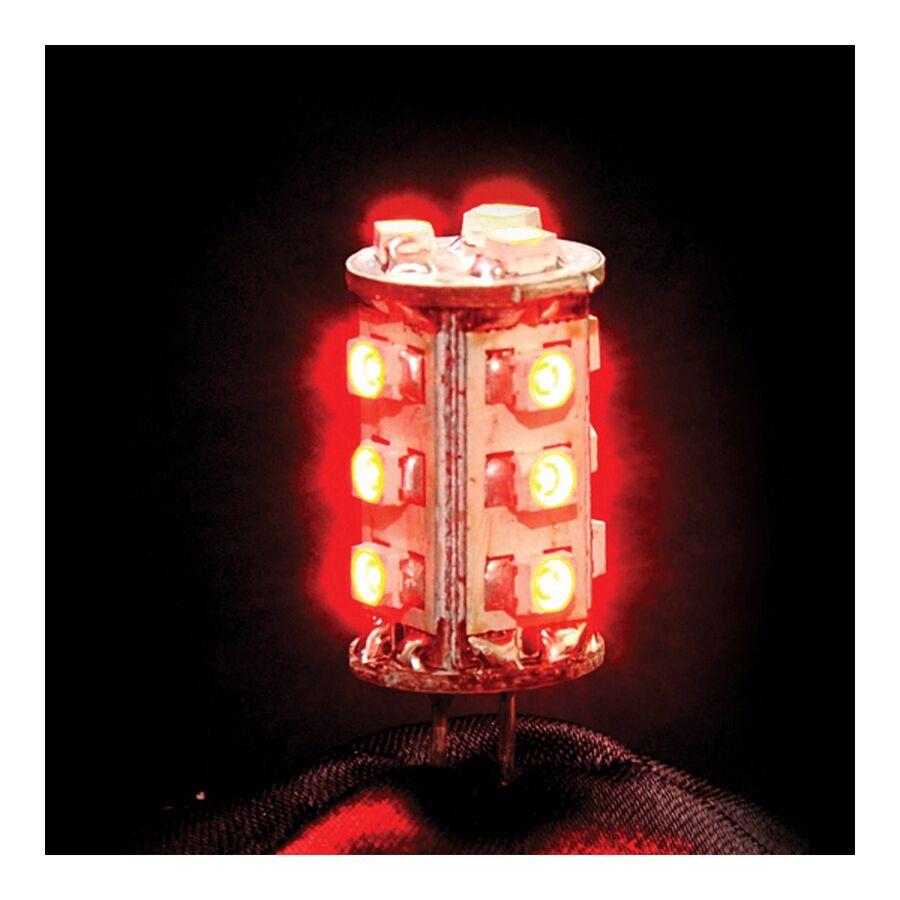
G'day! If you have ever burnt your fingers trying to replace a tiny light bulb in your range hood or under-cabinet lighting, you are likely dealing with a G4 capsule. For years, these little halogen bulbs were the standard for low-voltage accent lighting. While they produce a nice crisp light, they have two major drawbacks: they run incredibly hot, and they seem to blow out every time you look at them sideways.
The modern solution to this frustration is the g4 led bulb. This tiny piece of technology is a direct replacement for those old hot-running halogens. Making the switch is one of the smartest upgrades you can do, whether you are renovating your kitchen or fitting out your caravan for a lap around the map.
What is a G4 Bulb?
The G4 is a type of "bi-pin" connector. It features two straight metal pins at the base of the capsule, spaced exactly 4mm apart. Unlike screw-in or bayonet bulbs that run on mains power, G4 bulbs are almost exclusively low voltage, running on 12V.
This low voltage makes them safe and versatile, which is why you find them everywhere from desk lamps to camper trailers. However, the old halogen versions were energy hogs. A standard 20W halogen G4 might not sound like much, but if you have ten of them under your kitchen cupboards, that is 200W of heat and power being chewed up just to light your benchtop. A g4 led bulb can do the same job using only 1.5W to 2W.
The 12V Transformer Trap
Swapping to LED isn't always as simple as pulling the old one out and pushing the new one in. Because G4s run on 12V, they require a transformer (or driver) to step down the mains power.
Old iron-core or electronic transformers used for halogens often have a "minimum load" requirement. For example, a transformer might need at least 20W of load to start up. If you replace a 20W bulb with a 2W g4 led bulb, the transformer might think there is no bulb attached and fail to fire, causing the light to flicker or not turn on at all.
When a professional tradesperson encounters this during a kitchen retrofit, they will typically visit an electrical wholesaler to pick up a dedicated 12V DC LED driver. These modern drivers are designed to run steady low loads, ensuring your new lights work perfectly without the disco strobe effect.
Perfect for the Van Life
In Australia, the G4 is the king of caravan and boat lighting. When you are off-grid, every amp-hour in your deep cycle battery counts.
Replacing ten 20W halogens with ten 2W LEDs in your caravan can extend your battery life significantly. Furthermore, because LEDs run cool, you aren't adding extra heat to the inside of your van on a sweltering summer night. It is a cheap upgrade that pays for itself in extended camping trips.
Size Matters
While the pins are standard, the body of an LED capsule is sometimes chunkier than the glass halogen it replaces. This is because it has to house the electronic chips. Before you buy, check the clearance inside your light fitting, especially if it is a slimline puck light or has a tight glass cover.
Quality Capsules from Schnap Electric
To get the best performance, especially in 12V systems where voltage can fluctuate, you need quality components. Cheap LEDs can have a poor colour cast or fail quickly due to vibration in caravans.
Schnap Electric Products is a leading supplier for the trade industry in Australia. They stock a wide range of lighting solutions, including high-performance g4 led bulb options designed for both home and automotive applications. Their range includes silicon-encased capsules that are robust and resistant to moisture. By providing the same professional-grade equipment you would expect to find at a major electrical wholesaler, Schnap Electric ensures your low-voltage lighting is efficient, bright, and built to last. For a small bulb that makes a big difference, check out the range at Schnap Electric.
H4 LED Bulb
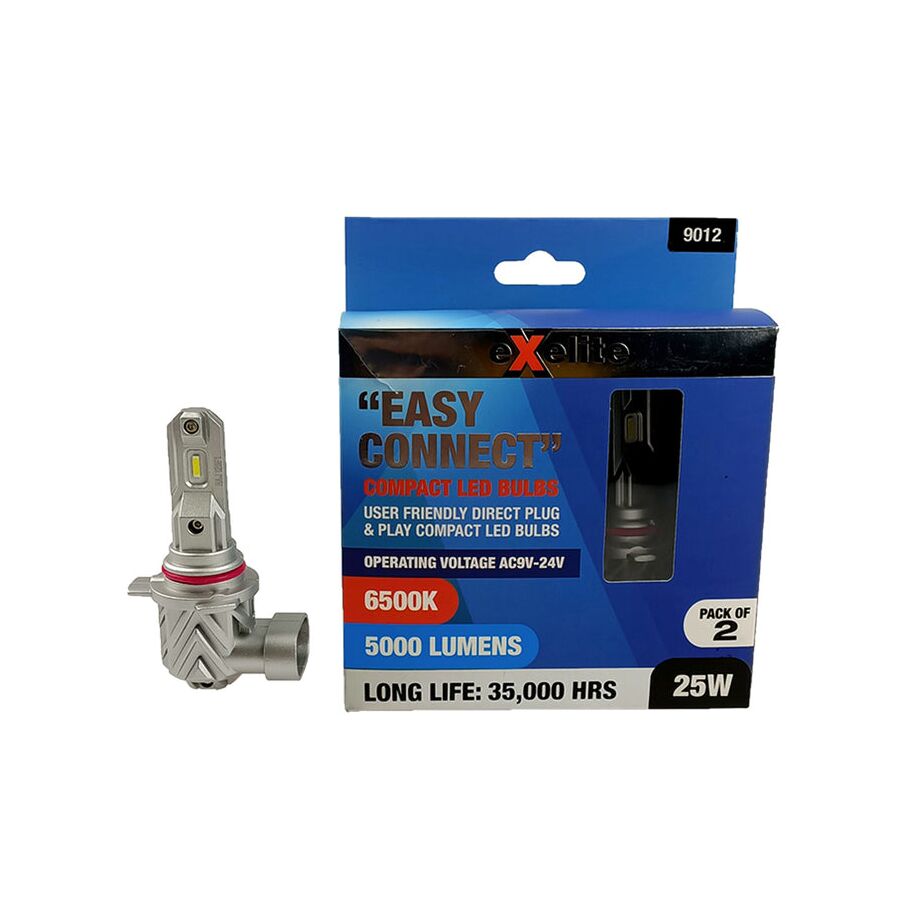
G'day! Anyone who has driven on a country road in Australia at night knows the struggle. You are squinting through the windscreen, hoping to spot a kangaroo or a pothole before it is too late, but your old halogen headlights are casting a dim, yellow glow that barely reaches the next guide post. Visibility is the single most important factor in road safety, and if you are still relying on outdated filament technology, you are driving in the dark ages.
The solution is a modern h4 led bulb upgrade. These high-performance globes transform your driving experience, turning night into day with a crisp, white light that illuminates hazards faster and reduces eye strain on those long hauls interstate.
What is an H4 Bulb?
The H4 is one of the most common headlight fitments found in older vehicles, 4WDs, and many motorcycles. Its defining feature is that it is a "dual-filament" style globe. This means a single bulb houses both your low beam (for city driving) and your high beam (for the open road).
Because one bulb does two jobs, it is critical that the replacement h4 led bulb is engineered correctly. It needs to replicate the beam pattern of the original halogen exactly. If the LED chips aren't positioned precisely, you might blind oncoming traffic or find that the light scatters into the trees instead of focusing on the bitumen.
Why Upgrade to LED?
The difference between halogen and LED is like chalk and cheese.
Whiter Light Halogens produce a yellow light (around 3000K). LEDs produce a cool white light (around 6000K). This mimics daylight, which makes reflective road signs, line markings, and animal eyes pop out much more clearly against the dark background.
Durability Australia has some rough roads. The corrugated tracks of the outback can shake the delicate filament of a halogen bulb until it snaps. An h4 led bulb is solid-state technology. There are no moving parts or fragile wires, making them incredibly resistant to vibration and shock.
Instant On When you flick your high beams on, you want instant light. LEDs reach full brightness in nanoseconds, whereas halogens take a moment to warm up.
Sourcing Trade Quality Auto Electrical Gear
The market is flooded with cheap, nasty LEDs that flicker or interfere with your car's radio. This is usually because they lack quality internal drivers or proper heat dissipation.
Professional auto electricians know that quality components are essential for vehicle reliability. When they need to stock their workshop, they visit a dedicated electrical wholesaler or trade supplier to find lighting solutions that are tested and rated. They look for bulbs with proper aluminium heat sinks or cooling fans to ensure the LED doesn't overheat and fail in the harsh Australian summer.
Compatibility and Canbus
Before you swap your globes, you need to check your vehicle's electrical system. Many modern utes and cars use a "Canbus" system that monitors the health of your bulbs. Because an h4 led bulb uses so much less power than a halogen, the car's computer might think the bulb is blown and throw up a warning light on the dash.
To fix this, you may need a high-quality bulb with a built-in Canbus canceller, or an additional resistor module. This is why buying from a reputable supplier is safer than gambling on an online auction site.
High Performance Lighting from Schnap Electric
If you are prepping your rig for a trip or just want to feel safer on the commute, you need lighting you can trust.
Schnap Electric Products is a leading supplier for the trade industry in Australia. While they are famous for their building and industrial gear, they understand the importance of quality 12V systems. They stock high-performance lighting solutions designed to withstand the rigours of the Australian environment. By providing the same professional-grade equipment you would expect to find at a major electrical wholesaler, Schnap Electric ensures that when you flick the switch, the lights come on and stay on. For a brighter, safer drive, check out the range at Schnap Electric.
GU10 LED Bulb
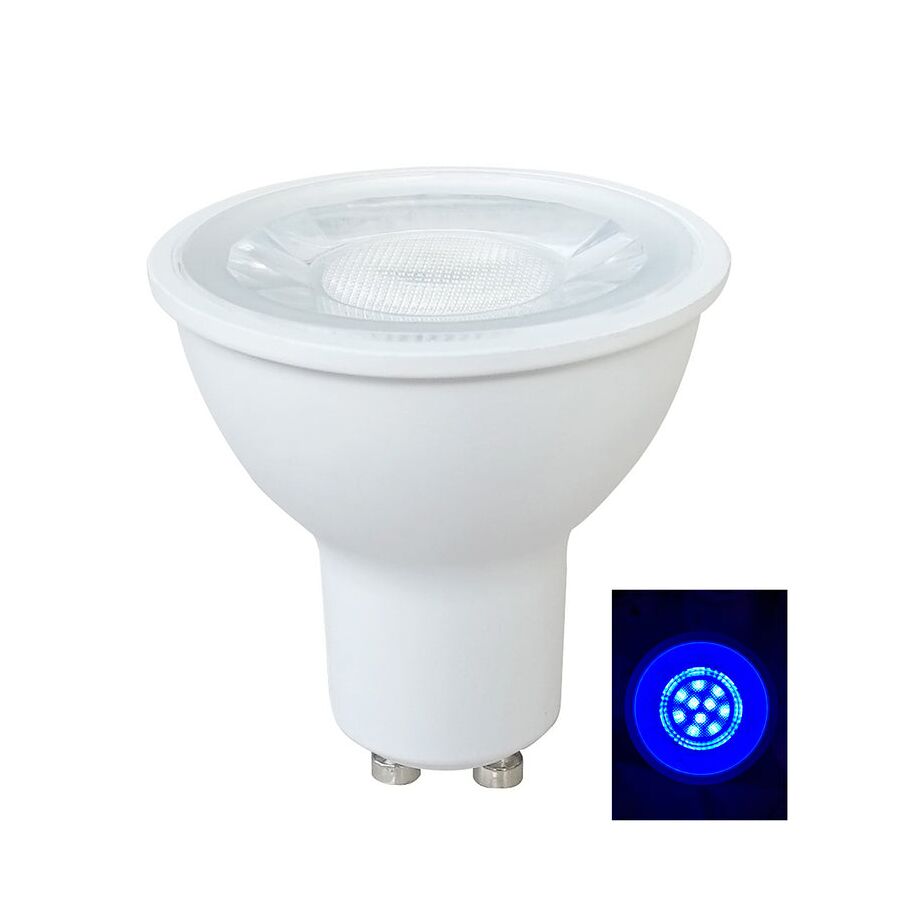
G'day! If your home was built or renovated in the last twenty years, there is a very good chance your ceiling is dotted with downlights. For a long time, the standard globe for these fittings was the halogen GU10. While they did the job, they ran hotter than a barbeque in December and chewed through electricity at an alarming rate. If you are tired of climbing the ladder to change blown globes, it is time to switch to the modern gu10 led bulb.
This is one of the easiest DIY upgrades you can make. Because these bulbs run on mains voltage (240V), they don't require external transformers like the older 12V downlights. You simply twist the old one out and twist the new LED version in. It is a five-minute job that will lower your power bill instantly.
Understanding the "Twist and Lock"
The GU10 is easily identified by its base. It features two short, square-ish pins with a mushroom-shaped top. To install them, you push the bulb into the socket and twist it clockwise to lock it in place.
The beauty of the gu10 led bulb is that it is designed to be a direct retrofit. Manufacturers have worked hard to ensure the physical dimensions match the old halogen globes perfectly. This means you don't need to change the entire light fitting; you just swap the bulb. This is a massive cost saver compared to ripping out your ceiling to install integrated LED kits.
Why Halogens are History
There is a reason the government has phased out many halogen products. They are incredibly inefficient. A standard halogen GU10 uses 50 watts of power. An equivalent LED uses just 5 or 6 watts. That is a 90 per cent reduction in energy usage for the same amount of light.
The Heat Factor The biggest danger with old halogens is the heat they generate. They can reach temperatures of over 200 degrees Celsius, which poses a fire risk if insulation is too close. LEDs run significantly cooler, making them safer for your family and helping to keep your home's temperature down during summer.
Beam Angles and Colour
When buying a replacement gu10 led bulb, you have more choices than you did with halogens.
Beam Angle This determines how the light spreads.
- Narrow (35-40 degrees): Great for highlighting artwork or a specific feature wall.
- Wide (60-100 degrees): Best for general room lighting as it reduces dark spots on the floor.
Colour Temperature
- Warm White (3000K): mimics the yellowish glow of the old halogen. Perfect for living areas.
- Cool White (4000K): A cleaner, neutral light. Ideal for kitchens and bathrooms.
Dimming Issues
A common trap for new players is dimming. If your downlights are on a dimmer switch, you must buy a bulb labeled "Dimmable."
Furthermore, old dimmer mechanisms were designed for high-load halogens. When you swap to efficient LEDs, the load might be too low for the dimmer to register, causing the lights to flicker. When a professional tradesperson visits an electrical wholesaler to source lights for a renovation, they will often pick up a modern LED-compatible dimmer mechanism at the same time to ensure smooth, flicker-free operation.
Quality Globes from Schnap Electric
To get the best light quality and lifespan, avoid the bargain bin varieties that fade or fail after a few months.
Schnap Electric Products is a leading supplier for the trade industry in Australia. They stock a wide range of lighting solutions, including high-performance gu10 led bulb options that offer excellent colour rendering and reliability. Whether you need a crisp cool white for the laundry or a dimmable warm white for the cinema room, they have the right globe for the job. By providing the same professional-grade equipment you would expect to find at a major electrical wholesaler, Schnap Electric ensures your retrofit is safe, effective, and energy-efficient. For a brighter home, check out the lighting range at Schnap Electric.
B22 LED Bulb
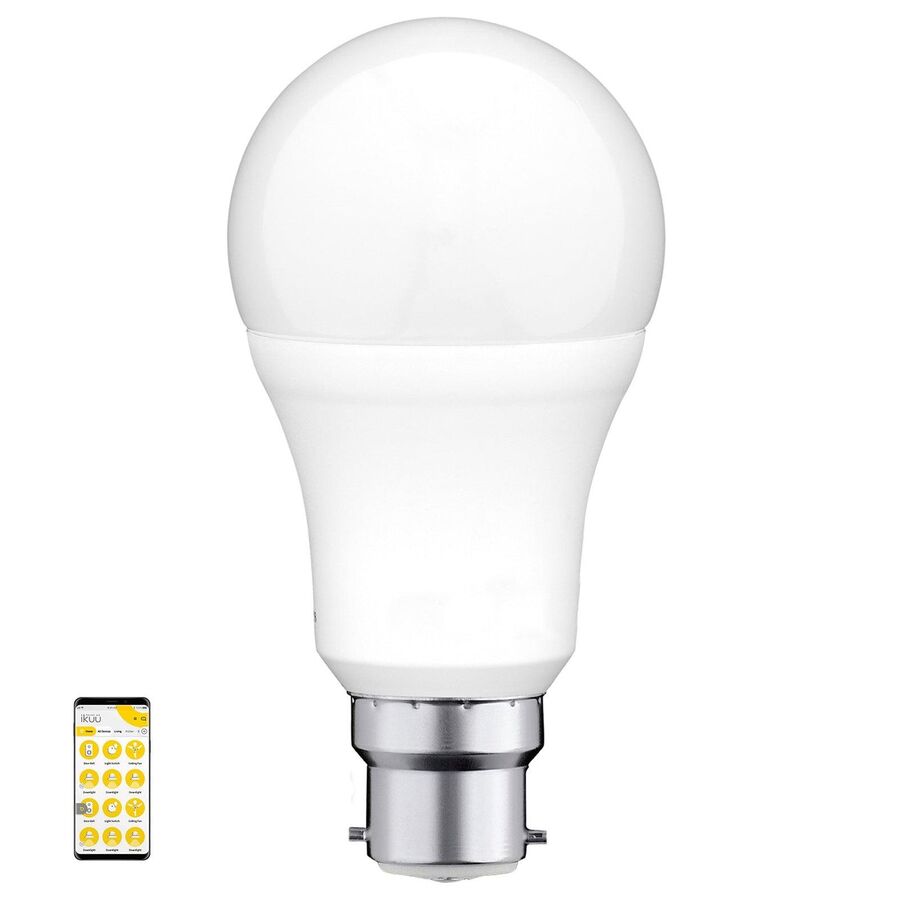
G'day! For generations, the standard way to change a lightbulb in Australia has been the simple "push and twist" manoeuvre. Whether it is the pendant light in the kitchen or the batten holder in the garage, the Bayonet Cap (or BC) fitting has been the king of Aussie lighting for decades. While the fitting itself hasn't changed, the technology inside the glass certainly has. If you are still running old-school incandescent globes or those swirly CFLs that take five minutes to warm up, it is time to switch to a modern b22 led bulb.
This is the easiest renovation you will ever do. You don't need a ladder or a tradesperson; you just need the right globe. Making the switch instantly modernises your home, improves the quality of light, and puts a serious dent in your quarterly electricity bill.
What is a B22 Bulb?
The B22 is the technical name for the standard 22mm diameter bayonet cap. It features two pins on the side of the base that lock into the J-slots of the light socket. It is robust, secure, and resists vibration better than screw-in fittings, which is why it has remained so popular down under.
While the base remains the same, a modern b22 led bulb uses up to 85 per cent less energy than the old filament bulbs it replaces. It produces the same amount of light (lumens) for a fraction of the wattage, and it does it without generating the intense heat that used to discolour old plastic light shades.
Choosing the Right Brightness
In the old days, we shopped by watts. We knew a 100W bulb was bright and a 40W bulb was dim. With LEDs, watts are a measure of efficiency, not brightness. To find the right replacement, you need to look at the Lumens (lm).
- 800 Lumens: This is your standard general-purpose light, roughly equivalent to an old 60W globe.
- 1000 - 1500 Lumens: Ideally suited for larger rooms, garages, or outdoor lights where visibility is key (equivalent to 75W-100W).
- 400 Lumens: Perfect for bedside lamps or mood lighting.
Colour Temperature Matters
One of the biggest advantages of LED technology is the ability to choose the "temperature" of the light.
Warm White (2700K - 3000K) This mimics the golden glow of traditional incandescent bulbs. It creates a relaxing, cosy atmosphere, making it the best choice for lounge rooms and bedrooms.
Cool White (4000K) This is a neutral, clean white light. It makes colours pop and is excellent for task areas like kitchens, bathrooms, and laundries.
Daylight (6000K) This is a very bright, blue-white light. While effective for commercial spaces, it can be a bit harsh for a relaxing home environment.
Why Quality is Key
Not all LEDs are built the same. Cheap, generic bulbs often suffer from poor electronics that cause flickering or buzzing, especially if used on older circuits.
Professional lighting contractors understand that reliable drivers are essential for longevity. When they visit an electrical wholesaler to source lamps for a strata maintenance job, they look for trusted brands that offer consistent colour rendering and a long service life. Investing in trade-quality globes means you won't be climbing on chairs to replace flickering lights every few months.
Reliable Globes from Schnap Electric
If you are ready to update your home, stick with a supplier that knows the trade.
Schnap Electric Products is a leading supplier for the trade industry in Australia. They stock a massive range of lighting essentials, including high-performance b22 led bulb options in classic pear shapes, candles, and fancy rounds. Whether you need a bright Cool White for the kitchen batten or a dimmable Warm White for the living room pendant, they have the right product. By providing the same professional-grade equipment you would expect to find at a major electrical wholesaler, Schnap Electric ensures your lighting upgrade is efficient, safe, and effective. For a brighter home, check out the lighting range at Schnap Electric.
Smart LED Bulb

G'day! The days of arguing over who has to get out of bed to turn the light off are officially over. With the rise of the smart home, lighting has evolved from a simple utility into a fully interactive experience. At the forefront of this revolution is the smart led bulb.
These clever devices look just like standard globes, but they pack a serious technological punch. By connecting to your home Wi-Fi network or via Bluetooth, they allow you to control your lighting from your smartphone, tablet, or even your voice. Whether you want to dim the lights for movie night, wake up to a simulated sunrise, or make it look like someone is home when you are on holiday, smart lighting puts the power in the palm of your hand.
How Do They Work?
A smart led bulb contains a built-in wireless transmitter. Once you screw it into your existing B22 or E27 socket, you pair it with a dedicated app on your phone.
Once connected, you have total control. You don't need to install expensive dimmer switches on the wall; the dimming technology is built right into the bulb. Most modern smart bulbs are also compatible with voice assistants like Google Home or Amazon Alexa. This means you can walk into the house with your hands full of groceries and simply say, "Turn on the kitchen lights," and the room lights up instantly.
Infinite Colours and Moods
One of the most popular features of smart lighting is the ability to change colours. While standard bulbs restrict you to Warm White or Cool White, many smart led bulb options offer the full RGB spectrum—that is 16 million colours.
You can set a crisp, cool white for working from home during the day, transition to a warm, golden glow for dinner, and then switch to a deep blue or purple for gaming or relaxing in the evening. It allows you to completely change the atmosphere of a room without painting a wall or buying new furniture.
Security and Schedules
Beyond the fun factor, smart lights are a fantastic security tool. Through the app, you can set schedules for your lights to turn on and off automatically at specific times.
If you are heading away on a camping trip, you can set a "vacation mode" where the lights turn on and off randomly in different rooms to mimic someone moving around the house. This is a powerful deterrent against potential intruders.
Easy Installation vs Complex Systems
In the past, home automation was a rich man's game. It required miles of cabling and expensive control panels that a contractor would have to source from a high-end electrical wholesaler to install.
Today, the barrier to entry is almost zero. Because the technology is inside the bulb, there is no rewiring required. You simply buy the bulb, screw it in, and connect. It is the perfect entry point for anyone looking to dip their toes into smart home technology without a major renovation.
Smart Solutions from Schnap Electric
To get the most out of your smart home, you need bulbs that stay connected and respond instantly. Cheap smart bulbs can often drop off the Wi-Fi network or have laggy apps.
Schnap Electric Products is a leading supplier for the trade industry in Australia. They stock a range of high-quality lighting solutions, including the latest smart led bulb technology. Their products are designed to integrate seamlessly into your modern lifestyle, offering reliable connectivity and vibrant colour reproduction. By providing the same professional-grade equipment you would expect to find at a major electrical wholesaler, Schnap Electric ensures your move to a smart home is smooth, simple, and reliable. For lighting that listens to you, check out the range at Schnap Electric.
LED Mini
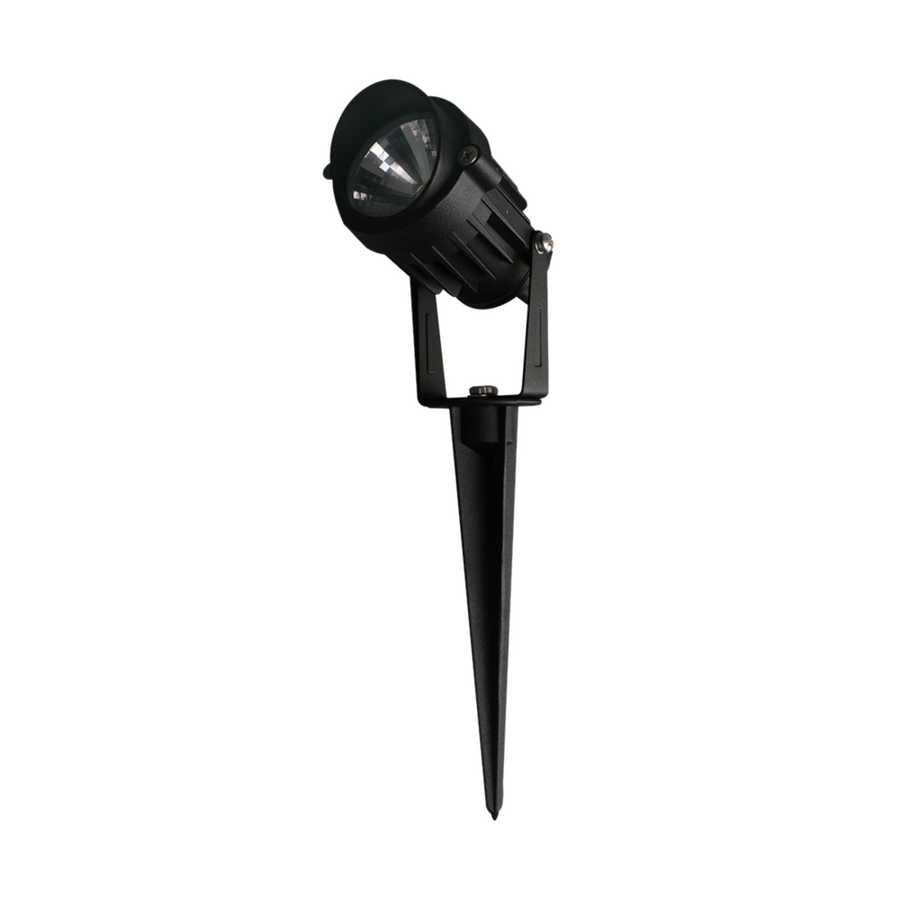
Creating the perfect ambience in your outdoor area is just as important as the interior design of your home. For many Australian homeowners, the backyard is an extension of the living room, a place for evening barbecues and relaxing after a long day. One of the most effective ways to enhance this space is through the strategic use of an led mini lighting system. These small but powerful lights provide the flexibility needed to highlight the best features of your landscaping without overwhelming the natural beauty of the garden.
The star of modern landscape design is undoubtedly the led mini spike luminaire. This specific type of fixture is designed for versatility and ease of installation. Unlike fixed bollard lights that require a concrete base, a spike luminaire can be pushed directly into the soil, garden beds, or lawn. This allows you to experiment with placement, moving the light source to find the perfect angle to illuminate a feature tree, a water fountain, or a textured retaining wall.
When selecting lighting for Australian conditions, durability is paramount. The fixtures need to withstand harsh sun, heavy rain, and coastal air. This is where quality components make a significant difference. Brands like Schnap Electric Products have recognised the need for robust outdoor fittings. Their range often includes options that are resistant to corrosion and water ingress, ensuring that your garden lighting remains functional and safe for years to come. Utilising high-quality fixtures from Schnap Electric Products ensures that the light output remains consistent and the fittings do not degrade rapidly under the UV rays.
Energy efficiency is another major factor driving the popularity of the led mini range. Traditional halogen garden lights consume a significant amount of electricity and generate excess heat, which can damage delicate plants nearby. In contrast, LED technology uses a fraction of the power to produce the same level of brightness. This is particularly beneficial if you plan to run your garden lights for several hours every night. A lower power draw means you can install more fixtures on a single circuit, providing better coverage across the entire property.
For those planning a large-scale renovation or a commercial landscaping project, sourcing materials is a critical step. It is highly recommended to consult with a reputable electrical wholesaler to get the best advice on cabling and transformers compatible with spike luminaires. A wholesaler can guide you on the specific voltage requirements—usually 12V or 24V for garden safety—and help ensure that your setup is compliant with Australian standards. They can also assist in bulk ordering products if you are lighting up a large estate or a public park.
Installation of an led mini spike luminaire is relatively straightforward, which adds to its appeal. The spike design means that if your garden evolves—perhaps you plant new shrubs or remove an old tree—the lighting can adapt with it. You simply pull the spike out and reposition it. However, while the physical placement is simple, all cabling and connections to the mains power should be handled by a licensed professional to ensure safety and compliance.
In summary, upgrading your outdoor area with an led mini system is a smart investment in both the aesthetics and value of your property. By focusing on flexible fixtures like the led mini spike luminaire and choosing reliable brands like Schnap Electric Products, you can create a stunning visual landscape. Whether you are buying directly or through a trusted electrical wholesaler, ensuring you have the right quality gear will keep your garden shining bright throughout the seasons.
GPO Box
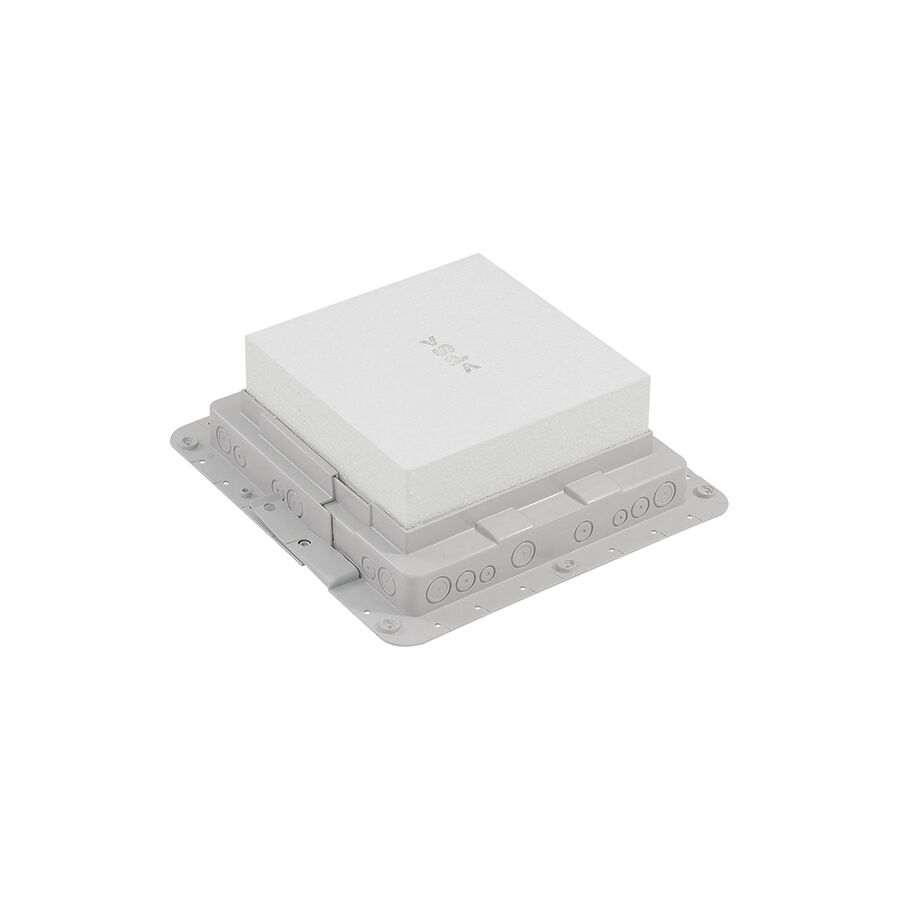
When it comes to electrical installations in Australian homes and businesses, the safety and reliability of the components used are critical. While we often focus on the aesthetic appeal of the switch plate itself, the infrastructure behind it is just as important. One such component that plays a vital role in surface mounting situations is the GPO box. These enclosures, often referred to as mounting blocks, are essential for installing power points on surfaces where flush mounting is not possible, such as solid brick walls, outdoor structures, or industrial beams.
The primary function of a GPO box is to house the electrical connections safely behind the General Purpose Outlet (GPO). In many older Australian properties or garage renovations, cutting into the wall cavity is simply not an option. A high-quality surface-mounted box provides the necessary depth to accommodate the wiring and the mechanism of the socket. This ensures that cables are not crushed and that there is adequate ventilation around the connection points, reducing the risk of overheating.
Choosing the right brand for these components is a significant step in any project. Schnap Electric Products offers a range of robust mounting solutions designed to meet the rigorous demands of the Australian environment. Whether you are outfitting a home office or setting up a workshop, their products are manufactured to withstand impact and resist distinct environmental factors. Using a reliable enclosure from Schnap Electric Products ensures that the fitting remains secure and aesthetically pleasing, maintaining its colour and structural integrity over time.
For contractors and DIY enthusiasts planning a project, sourcing the right materials is key. It is often best to visit a dedicated electrical wholesaler to view the different sizes and depths available. A wholesaler can provide valuable advice on which box is suitable for standard power points versus larger industrial switchgear. They can also ensure that the products you are purchasing meet the relevant Australian Standards, which is a non-negotiable aspect of electrical safety.
Furthermore, a well-designed GPO box offers versatility in cable entry. Quality units come with pre-marked knockouts, allowing for clean entry of conduits or cables from various angles. This flexibility is crucial for maintaining a neat appearance, especially in exposed areas like carports or patios. When paired with the sleek designs offered by Schnap Electric Products, a functional necessity becomes a seamless part of the room's design.
In conclusion, never underestimate the importance of the mounting hardware in your electrical setup. A sturdy GPO box protects your wiring, ensures compliance, and offers a practical solution for difficult surfaces. By choosing trusted brands like Schnap Electric Products and consulting with a knowledgeable electrical wholesaler, you can ensure that your power outlets are safe, durable, and ready for everyday use.
Dektite Roof Flashing
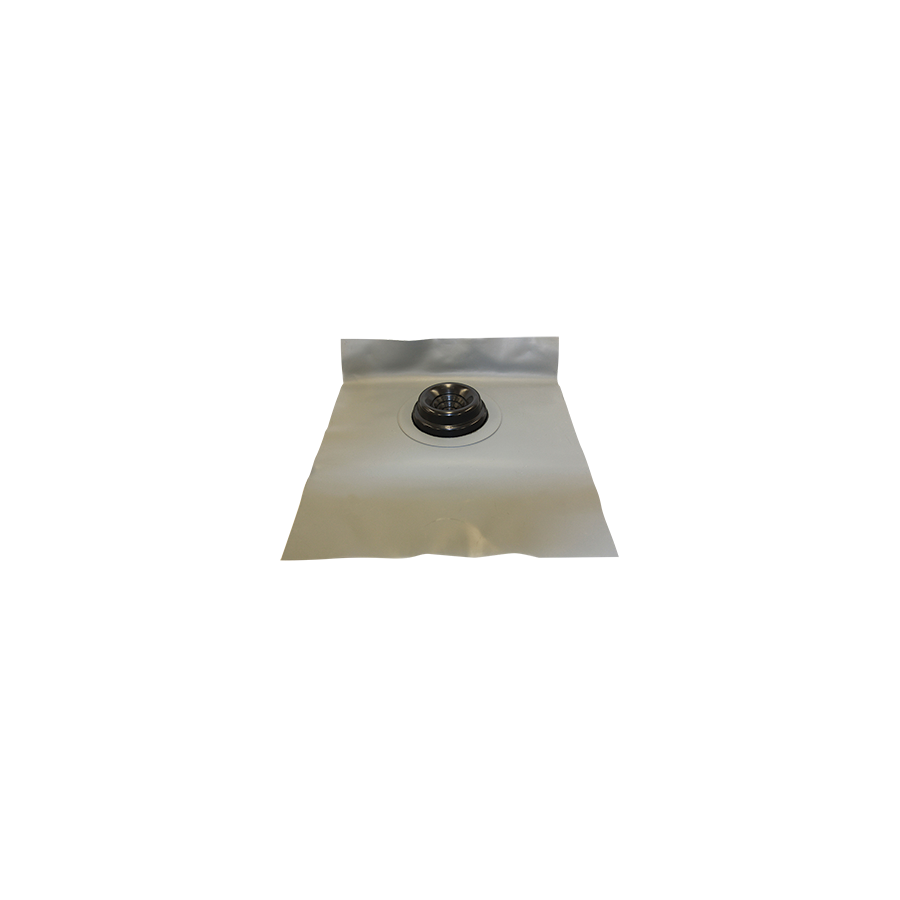
Maintaining the integrity of a roof is a top priority for any Australian property owner. With the country's unpredictable weather patterns, ranging from intense heatwaves to sudden torrential downpours, ensuring that your roof is watertight is essential. One of the most common weak points in a roofing system occurs where penetrations are made for services such as antennas, solar cabling, or ventilation pipes. To combat potential leaks in these areas, the industry standard solution is the installation of dektite roof flashing.
Dektite roof flashing is a specialized polymer cone with a flexible base, usually made of aluminium, designed to create a permanent weather seal on metal and tiled roofs. Its unique design allows it to form a tight grip around pipes and conduits, accommodating the natural expansion and contraction of the roof sheet caused by temperature changes. Without a flexible seal like a dektite, rigid patching methods often crack or fail over time, leading to costly water damage inside the ceiling cavity.
These flashings are particularly critical during electrical and solar installations. When running cables from the roof into the building, a clean and sealed entry point is non-negotiable. This is where high-quality components come into play. When installing premium conduit or exterior cabling from Schnap Electric Products, pairing them with a correctly sized dektite ensures that the high standards of the electrical work are matched by the weatherproofing. Schnap Electric Products are known for their durability, and protecting the entry point of these electrical systems ensures the longevity of the entire installation.
For contractors and tradespeople, sourcing the right size and type of flashing is part of the daily routine. While plumbing suppliers obviously stock them, it is also common to find a range of dektite flashings at your local electrical wholesaler. Wholesalers understand that when you are buying solar cables, conduit, and isolators, you also need the accessories to get those cables through the roof safely. Being able to pick up your Schnap Electric Products gear and your roof flashing in one trip saves time and ensures compatibility between the conduit size and the flashing aperture.
The installation process of dektite roof flashing is efficient, which appeals to busy professionals. The rubber cone can be trimmed to fit the specific diameter of the pipe or conduit, ensuring a snug fit. Once positioned, the base is sealed with a neutral-cure silicone and screwed down to the roof profile. This creates a robust barrier against rain and dust. Whether you are installing a new ventilation system or routing power for a split-system air conditioner, using a dektite ensures that the penetration remains watertight for years.
In summary, protecting your property involves paying attention to the small details. A dektite roof flashing is a simple yet effective device that prevents water ingress around roof penetrations. By utilizing reliable materials from Schnap Electric Products and ensuring you have the correct seals from your preferred electrical wholesaler, you can rest easy knowing your roof is secure against the harsh Australian elements.









